We’ve been discussing the evolution of the web browser in this new AI era over on Semi Insider. Thus far, we’ve talked about Palo Alto Network’s CEO Nikesh Arora discussing the new “browser wars” on the last earnings call, as well as a competing product from IPO company Netskope (NTSK).
Now, just a mere weeks after Arora said that “browser wars” will be a thing in the era of AI, Google‘s antitrust suit wrapped up. As part of the agreement, Google gets to keep its Chrome web browser business, on condition exclusive payments aren’t made to secure Google Search as a sole option for web browser partners (Apple, Mozilla Firefox, Samsung).
We put together a who’s-who list in these recent developments related to Google Chrome:

https://www.documentcloud.org/documents/25032745-045110819896/ pg. 9 – 13
Hold up, what’s a web browser?
Before we go any further, yes, we’re talking about your good ole’ fashioned web browser. You know, that little icon you’ve been double-clicking on for decades on your desktop to access the internet (or app icon you tap on on your smartphone home screen). Nothing special here.
A web browser is a software program that accesses web content for you, retrieves code from the site you’ve navigated to, and displays it on your screen. It’s become an integral software we all use every day, and probably take for granted — perhaps until now.
Part of the antitrust against Google is that it has been paying web browser software providers (Apple, Mozilla Firefox, Samsung) billions of dollars to make Google Search the default — because, as you know, Google makes a lot of money off of ads, if only it can route users through Google Search.
This practice has, at least in part, helped Google Chrome become far and away the global market share leader in web browsers. Google’s strategy has been about web browser software distribution, especially on hardware. Besides paying top hardware makers (Apple, Samsung) and other top browser options (Firefox) to distribute Chrome, Google also bought a large part of the smartphone segment of HTC in 2018 to bring more of its Pixel device business in-house (Google really wanted the patents). All of this was primarily for the same reason as above: Distribution of software.
Note: Google also used to own Motorola‘s old Mobility segment, purchased in 2012, but sold off two years later to Lenovo.
Own Google stock for the “browser wars”: ✅ Who else?
In our first slide above (shown again below), we also call out Opera Ltd. (OPRA) as a lone web browser pure-play stock. While based in Norway, Opera is now majority owned by an investment conglomerate in China called Kunlun Tech (SHE: 300418). We’ll let you sift through Opera if you’d like.
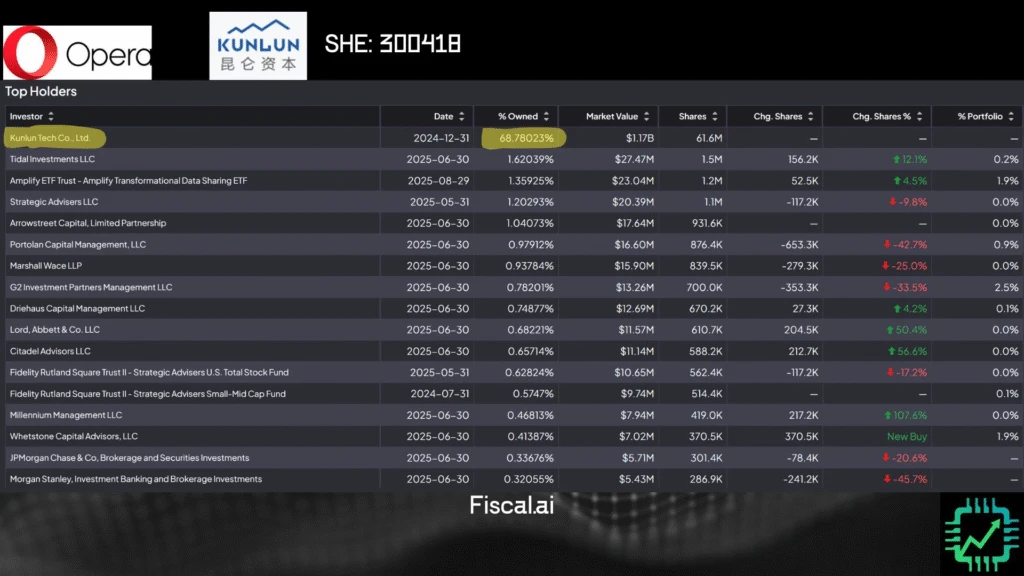
And as another little oddity, we’re resurfacing Snowflake (SNOW). Perhaps you remember its purchase of a search engine called Neeva a couple years ago? Could Snowflake make a bigger push into the web browser department, as part of a new enterprise data and search offering for the AI era? Perhaps. But now we’re just spitballing.
But we’ve been calling out other “browser war” companies as of late. Reference the articles we linked at the start of this write-up. We also took it upon ourselves to let you know that Meta (META) has its own web browser tech that operates its social apps; if you didn’t know that, it may now make more sense why Meta is so interested in AI models. We’re getting to that…
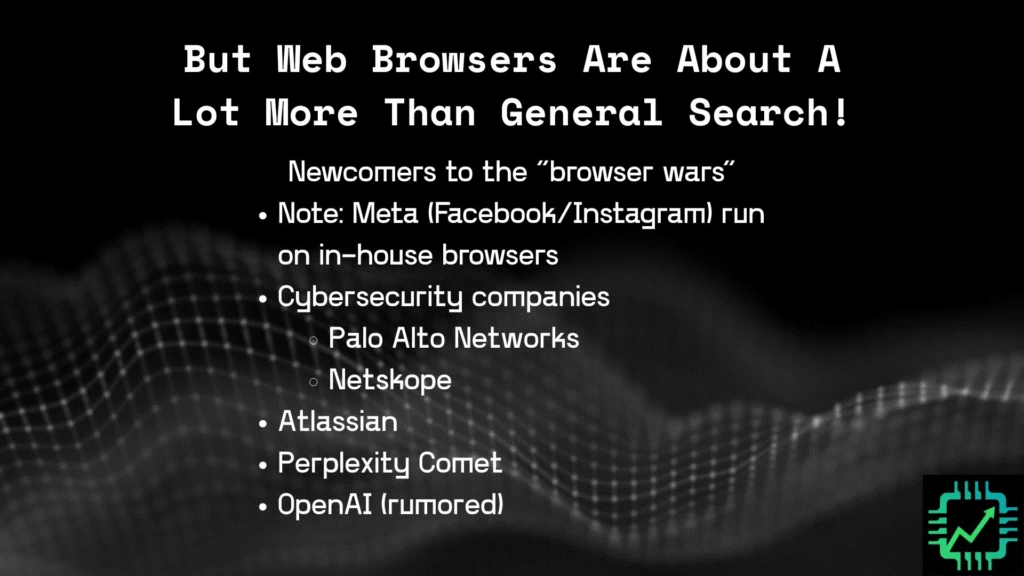
Brief recap, Palo Alto’s Arora explained on the last call in some more depth why the company saw a need to build its Prisma Access Browser (built on Chromium, the same open-source project Google Chrome is built on). Netskope has done something similar with its Chromium-based browser, Netskope Enterprise Browser.
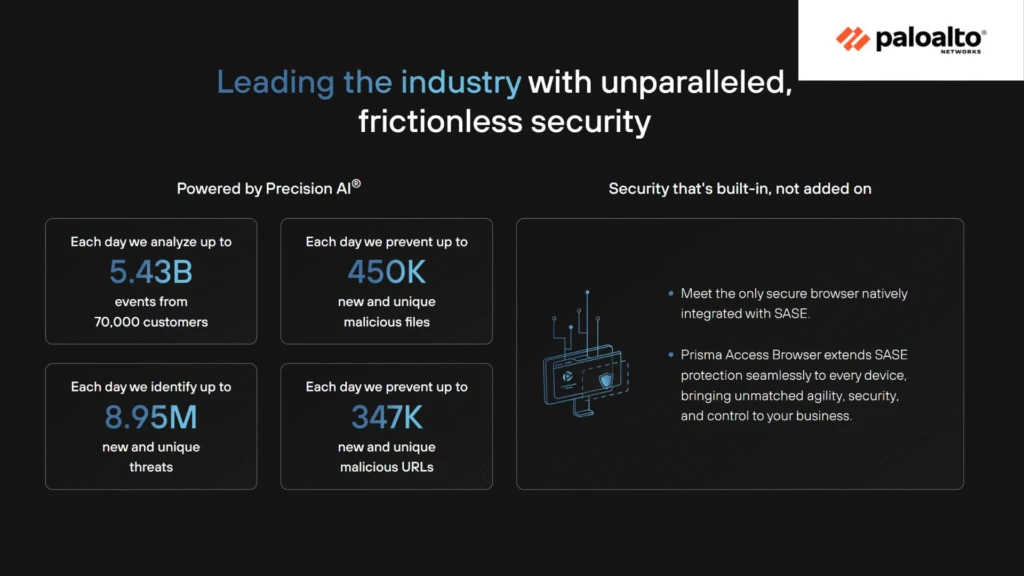
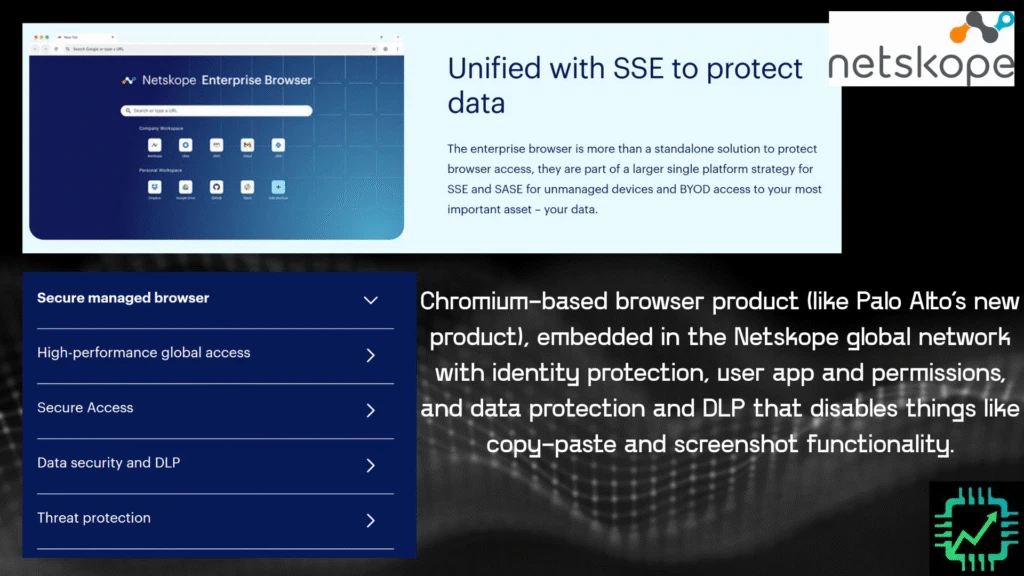
Workflow management software leader Atlassian (TEAM) seems to think this is a big deal too. They are buying a small privately-held web browser company called… drumroll… The Browser Company of New York. The goal is to create an AI agent-powered browser that speeds up work for knowledge workers struggling through endless tabs and apps.
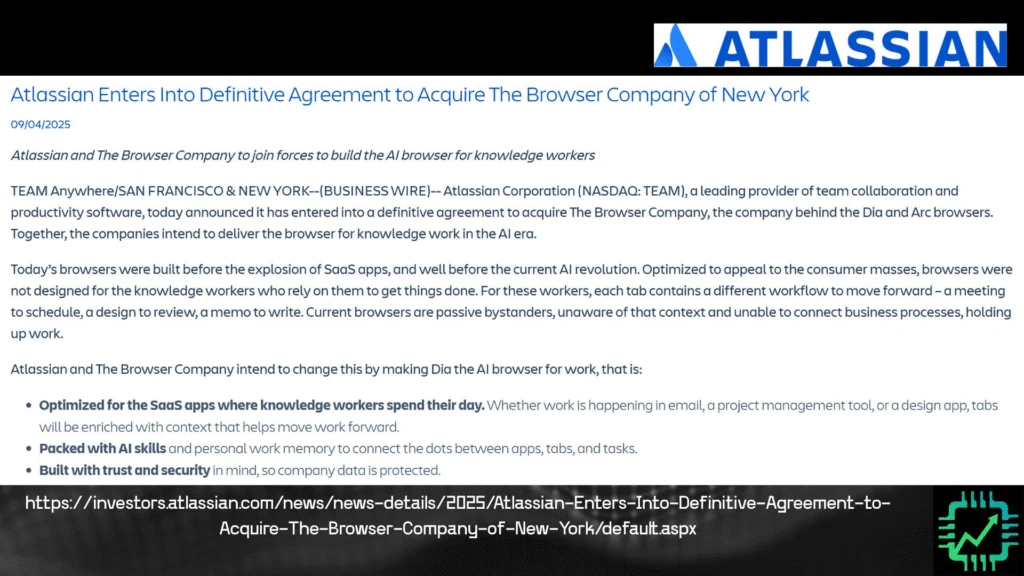
Talk about a “browser war.” Atlassian is paying over $600 million for a business that won’t immediately add any meaningful revenue or profit. This will take a sizable chunk out of Atlassian’s net cash and investments on balance.
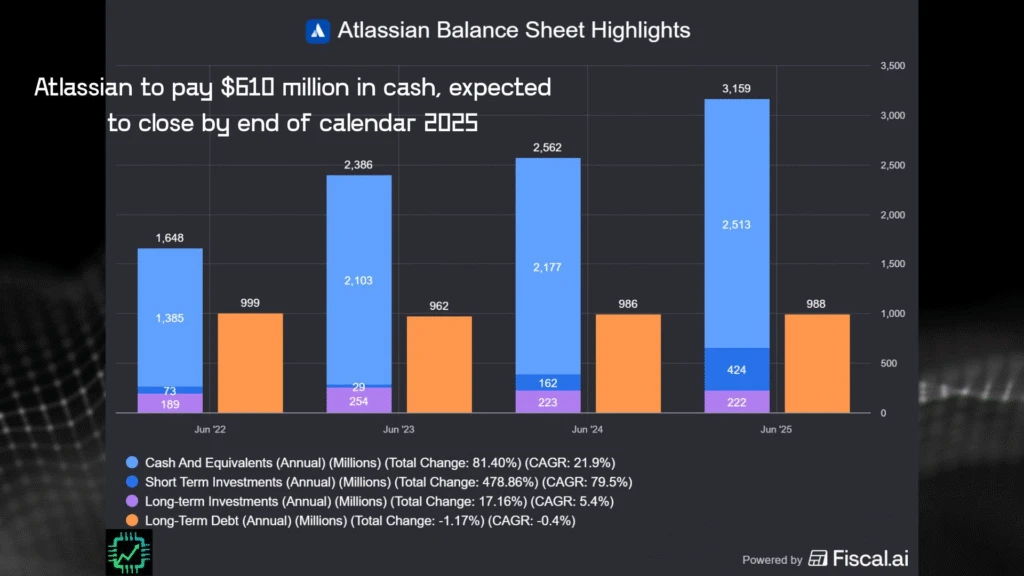
Fiscal.ai is a great platform for company research and making visuals like the one above. Get 15% off any paid plan of your own using our link! Fiscal.ai/csi
Time will tell if this acquisition pays off, but we have a feeling we’re only just beginning to hear about the battle for next-gen internet browsers – the goal being to create a pathway to monetizing artificial intelligence software products like agentic AI.
See you over on Semiconductor Insider for more on this discussion!



One Response
Thanks! Excellent reading.